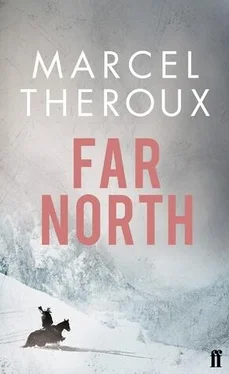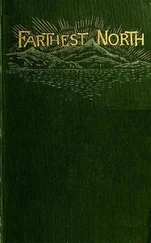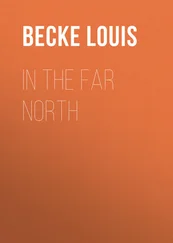None of the prisoners would say such a thing, of course. We had unwritten dos and don’ts that were stricter than the ten commandments. Only the greenest newcomer would let on that he was impressed by the food. The style was to kvetch and complain, to fight your corner fiercely if someone was encroaching on you — maybe even if they weren’t, so long as you could cut a good figure — never to express surprise, or doubt, and never to be curious.
*
There was a pigsty at the base where they raised pork for the guards. One time Shamsudin and I were sent to lay shingles on part of its roof. It was filthy hot on the roof in midsummer, and as new prisoners we got stuck with the worst jobs. Also, it was the guards’ idea of a joke to have a woman and a muslim working on the pigsty together.
After about fifteen minutes, the fellows who were supposed to be watching us sloped off somewhere, leaving us alone. The sun was bright overhead, and the smell of tar and shingles took me away from the place and made me think of home.
Shamsudin was working on a patch away to my left. I glanced over at him. He didn’t look up. He was crouched down on the slope of the roof, studying something. I wondered why he was so quiet. It crossed my mind for some reason that he felt guilty about throwing me over as a friend. Then I noticed how slowly he was going. I moved over to him and asked if he was all right. His face was grey and his hammer was shaking.
I was certain he was going to pass out. It was the height that was making him ill. We were twenty feet up. I wasn’t strong enough to hold him if he slipped so I cupped my palms to yell for the guards. Shamsudin laid his hand on my arm and pleaded with his eyes for me not to do it.
Even at ground level, he would have struggled with the job. There was something in Shamsudin of my father. He was out of place in the rough and tumble of the Far North. His hands were more like a woman’s than mine were.
In a decent world, there’s no shame in weakness, but there was nothing decent about life at the base. Failing at his task would mean at the least a week in the punishment cells. At the worst, it would be the kind of small wound to his reputation that would encourage others to tear at him, perhaps fatally. That’s how it was at the base.
I helped him up higher where he could hold on to the peak of the roof and gave him the nails to hold. He felt rigid and unsteady and I knew he was trying not to look down. I said we should talk to keep his mind off the height.
‘What should we talk about?’ he asked.
‘I don’t know,’ I said. ‘Tell me how we got into this fix.’ I meant how we got stuck up on the roof, but Shamsudin had a cast of mind that always leaned towards speculation, and he shared the interest of many of the other prisoners who liked nothing more than to talk about the disasters that had befallen us and why they’d come about.
It always seemed to me that nothing revealed the prisoners’ ignorance as much as when they talked of these things. You came across as many explanations as people you asked, and most of them told fairy tales that would shame children: a piece of the moon had fallen into the sea and made a tidal wave; tiny atom machines had eaten up all the sunlight; and so forth.
Of course, I knew what I’d seen: desperate people pitching into and overwhelming our tiny city; and I could guess the things they were running from — failed crops, cities with no light or water, gangs of lawless men — but what lay behind those troubles I couldn’t say.
So as he clung to the shingles with one hand, trying not to look down, and reached me nails from his apron with the other, Shamsudin told me his own idea.
He said the earth was close to five milliard years old. He spoke of seeing it from space, surrounded by a blur of clouds, turning from blue to white and back again as the centuries pass. They were long summers in which the oceans teemed and winters when even sea water froze hard. He said five times in that span of years all life had been wiped from the planet when it grew too dark or too hot. It was one of those times — a big moon that whacked into Mexico from space — that did for the dinosaurs.
It sounded like fairy tales to me, and I asked him if it was written in his Holy Book — he said, and that it was science that said so.
After the fifth time, it was our turn. We crept out of the mud. We peopled the planet, living in every corner, never mind wet or ice or desert, steadily growing wiser and more resourceful.
Around four and half milliard years after it began, the earth started to alter. Looking at it from space, you’d have seen rocket ships and satellites burst out of it like corn from a popper. The earth was in one of its warm times, had been since before we mastered farming — we’d grown accustomed to predictable seasons and good growing weather. But now there were so many of us, all wanting so much, and all armed with the inventions of previous centuries. Once, we’d been so many naked apes, scratching for life on the foreshore of an African ocean. Now we were a vast army, a termite mound of giants, who could shake the planet if we stamped together, who could warm the air just by breathing.
Shamsudin said the planet had heated up. They turned off smokestacks and stopped flying. Some, like my parents, altered the way they lived. Factories were shut down. ‘You asked me about the Koran,’ he said. ‘But I understand it as a doctor. For all our knowledge, things happen that we do not understand. Sometimes, the patient dies not from her illness, but from the medicine.’
As it turned out, the smoke from all the furnaces had been working like a sunshade, keeping the world a few degrees cooler than it would have been otherwise. He said that in trying to do the right thing, we had sawed off the branch we were sitting on. The droughts and storms that came in the years after put in motion all the things that followed.
Life in cities had ended.
I asked him about the world beyond the north, thinking of the plane, but he shrugged.
‘The whole world is a barer and less interesting place,’ he said. ‘Human misery has few varieties: tent camps, forced labour, hunger, violence, men taking food and sex by force. You yourself have seen them all.’
I’d finished the roof before he came to the end of his talk, but we both stayed up there, resting on the peak in the sunshine. His vertigo had passed. We were still up there talking when the guards came and yelled at us to come for the evening head count.
*
For a while, I passed in the camp as a man. I kept myself to myself, bathed alone, and rounded up the clean rags I needed each month discreetly. But sooner or later I knew the truth would come out. Living the way we did, there was no getting away from it for ever. I was braced for a rough ride when it did. The men in there thrived off each other’s weakness.
I was in the bathhouse when it finally happened. Two yahoos stumbled in and yanked my pants off me as a joke. They were too stunned by what they saw to make anything of it, but when I came in from the fields that night, I could tell by the looks I got that my secret was out.
‘Come and bunk with me, Makepeace,’ said the taller of the two that had found me. ‘I’ve got fourteen inches of kolbasa to share with you.’
I could hear the snap of his trousers as he pulled out his johnson and waved it at me.
It seemed like the whole hut snickered with him.< />
I was mending my work gloves but I looked up when he spoke, and I guess my eyes betrayed the contempt I felt.
‘Better cover her head. I’ve seen prettier faces on moose.’
‘I’ll just turn her around …’
And so it went on. The two of them alternating menace and foolishness, saying how they’d do this and do that to me.
Читать дальше












